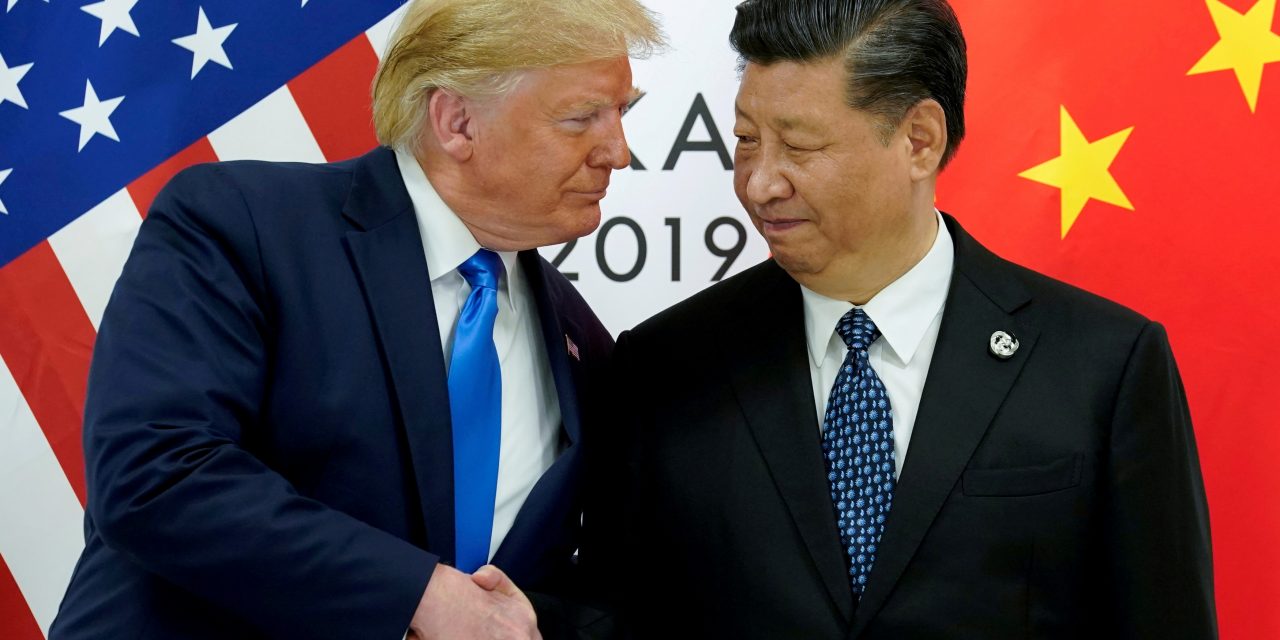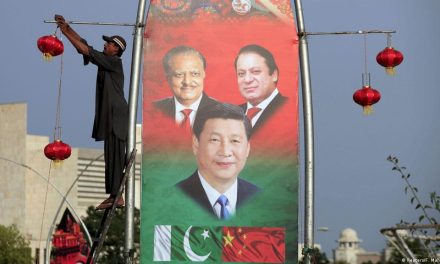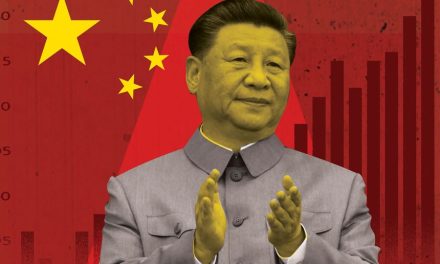BY BRADLEY A. THAYER AND LIANCHAO HAN
President Xi Jinping’s rejection of the U.S.-China trade deal negotiated by his envoy, Liu He, led to its failure last week. Some in China described Xi’s last-minute reneging on the deal as “huiqi (悔棋),” a metaphorical reference to a chess player who regrets a legal move he made and insists on retracting it.
Regardless of what move Xi intended to make, the result was not what anyone wanted — the imposition of tariffs of up to 25 percent on an estimated $200 billion in Chinese imports. While both sides agree to continue to talk, the Trump administration is considering raising tariffs on all other Chinese imports.
{mosads}The deeper issue is why Xi did what he did. Both Liu He and the official voice of the Chinese Communist Party (CCP), People’s Daily, cited three issues to explain Xi’s rejection of the deal: first, the U.S. wanted to keep some tariffs in place, and refused to abolish all of them; second, the U.S. demanded that China purchase unreasonable amounts of its products; and third, the text in the draft agreement was viewed by China as “unbalanced,” and harmful to China’s sovereignty.
The first and second issues are not new. Both sides have been discussing them from the beginning. The third point is the key needed to decipher China’s intention. During the negotiation, the United States requested that China put a mechanism in place to allow Washington to verify Beijing’s promises to remove its unfair trade practices. Because Communist China rarely keeps its promises, the U.S. government demanded the Chinese regime modify its laws to implement specific measures to prevent unfair trade practices, such as the theft of U.S. intellectual property and trade secrets.
Again, this is nothing new because the U.S. side has insisted from the beginning on monitoring and verifying the implementation of the agreement to ensure China keeps its promises. The Chinese negotiators agreed. But now China says that any requirement to amend its laws is “unacceptable to the Chinese people because it undermines China’s sovereignty and hurts its dignity.”
We have our own three explanations of why Xi Jinping aborted the trade deal. First, he worried about the domestic perception and reaction to any trade concessions. Anything that could be perceived as buckling under U.S. pressure, such as amending China’s laws, would run contrary to the “iron man” image Xi has created through his tough rhetoric. Had it come to fruition, Xi would be seen as the loser in this deal. Xi is less concerned about losing face with the U.S., but is greatly concerned about how this impasse reflects on his ability to lead the party and China, and to adequately manage Sino-American relations, all of which weakens his power.
{mossecondads}Within his clique, there seem to be major disagreements about the trade deal, and about Xi’s handling of the trade war. These doubts in the inner circle pose a threat to Xi’s authority to hold onto power. Thus, the agreement would have hurt his ability to rule. That’s why he torpedoed it, while claiming to be solely responsible for “all the consequences.” Importantly, he did not want the Chinese people to know about the deal’s failure because he initially blocked all news regarding the deal’s termination.
Second, Xi Jinping is testing the Trump administration’s determination. He had expected that the U.S. would back down, because of U.S. markets reacting badly to the impasse, and also from pressure to acquiesce to China’s terms from U.S. farmers and businesses that are likely to be affected. Of course, if the law-amending provision were the true problem for China, why did China not just negotiate on this issue, rather than rejecting nearly all of the core U.S. demands just before finalization? Clearly, Xi’s strategy is aimed at delaying the trade deal, and with the expectation of negotiating a better one after the 2020 U.S. presidential election.
Third, Xi Jinping absolutely does not want China to carry out the structural reforms that are a priority for the United States. This is because any of these changes potentially could threaten the CCP’s one-party rule. Any loss of the party and the state’s economic monopoly or dominance might lead to political liberalization. And this is completely unacceptable. The Xi regime will not permit the U.S. to impose upon the People’s Republic of China any demand for major legal changes, greater openness in Chinese banking, or the termination of intellectual copyright theft, and for reciprocal, fair trade practices.
For China, yielding to these demands is only taking China down the road toward political liberalization, and it will embolden the U.S. to push for additional demands, including advancing internet freedom and human rights concerns over the treatment of Chinese citizens.
A new round of trade conflict is inevitable. The world must understand that China under Xi is willing to accept the major risk of conflict in its determination to recast politics both in China and internationally, and particularly in China’s relationship with the United States. Xi’s present willingness to reject international norms in trade, and his harsh suppression of China’s Muslim minority, underscore this. The lesson here is that Xi’s actions in the trade war foreshadow China’s aggressive posture in the future.
This article first appeared in The Hill on 05/14/19 1:00 PM ET





















